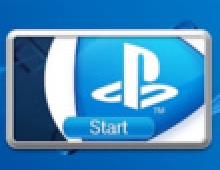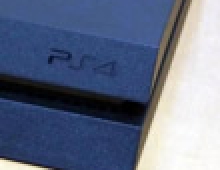
Sony Unveils Development Plans for PS3
Sony on Thursday unveiled a range of development tools so software companies can develop games for its next-generation PlayStation 3 video game console.
The company said it acquired Britain's SN Systems Ltd. and formed strategic
alliances with U.S.-based Ageia Technologies Inc., Havok and Epic Games to
provide more tools.
Sony is counting on PlayStation 3 to dominate in all aspects of networked home entertainment -- games, movies, music and more.
 The company had said in May at the Electronic Entertainment Expo that it planned to launch PlayStation 3 in 2006, but there had been concern in the development community about the immense cost of creating games with movie-quality graphics for a machine with unparalleled processing speed.
The company had said in May at the Electronic Entertainment Expo that it planned to launch PlayStation 3 in 2006, but there had been concern in the development community about the immense cost of creating games with movie-quality graphics for a machine with unparalleled processing speed.
"Things that we thought were only possible in movies are now possible in games," Ken Kutaragi, Sony's game division head, told a meeting of developers, suppliers and media.
"But we're receiving calls every day from game developers who want to know how to develop games for the PS3 and how (game unit) Sony Computer Entertainment intended to support them."
Sony has said the PS3 will feature a graphics chip with 300 million transistors, more than the combined processing power of the current-generation Microsoft Corp. Xbox, Nintendo Co. Ltd. Game Cube and the PlayStation 2 combined.
In addition, sources at Sony indicate that unlike the PSP, PS3 games will not feature any region code restrictions in the software component. However, the device will support playback of High Definition content through an HDMI digital interface, which features copy protection schemes.
Industry analysts believe the development cost of a high-end game for a machine like PS3 could rise to US$15 million to US$20 million from about US$10 million now.
 Sony also on Thursday
said it planned to launch a white version of its PlayStation Portable (PSP)
game console on Sept. 15 in Japan. The cost will be 24,800 yen (US$220) for a
package that includes accessories.
Sony also on Thursday
said it planned to launch a white version of its PlayStation Portable (PSP)
game console on Sept. 15 in Japan. The cost will be 24,800 yen (US$220) for a
package that includes accessories.
The white player will come with an updated version of the operating system, which will allow users to surf the Internet and access television programs from its downloading service (Sony communications networks). The device will offer a built-in internet browser, based on the HTML 4.01 specifications, but it will not support Macromedia's Flash technology. In addition, the updated PSP version will support playback of H.264/MPEG-4 AVC videos, and ATRAC3, MP4(AAC) and WAV (Linear PCM) audio stored in Sony's Memory Stick PRO duo.
Sony Computer Entertainment (SCE) will open a portal site named "Portable TV" (p-TV) which is dedicated to the moving image distribution service for PSP. The contents will be delivered from the p-TV via wireless LAN. The company demonstrated the service at "PlayStation Meeting 2005" held in Tokyo on July 21, 2005, such as to download and play back a Korean TV show and the like. Sony Pictures Entertainment Inc., BANDAI CHANNEL Co., Ltd., GAGA Communications Inc. and other companies have announced to provide contents.
Sony said it has shipped 5.7 million PSP units worldwide and was on track to launch the machine in Europe in September. It is expected to ship 12 million units in the current business year.
As part of its aim to boost sales, the company said it planned to have more than 150 game titles for PSP by the end of March 2006.
It also plans to increase the monthly manufacturing capacity of the disks used in the machines to 5 million from 3 million in anticipation of greater demand for movies, which can be viewed on the PSP.
Sony is counting on PlayStation 3 to dominate in all aspects of networked home entertainment -- games, movies, music and more.
 The company had said in May at the Electronic Entertainment Expo that it planned to launch PlayStation 3 in 2006, but there had been concern in the development community about the immense cost of creating games with movie-quality graphics for a machine with unparalleled processing speed.
The company had said in May at the Electronic Entertainment Expo that it planned to launch PlayStation 3 in 2006, but there had been concern in the development community about the immense cost of creating games with movie-quality graphics for a machine with unparalleled processing speed.
"Things that we thought were only possible in movies are now possible in games," Ken Kutaragi, Sony's game division head, told a meeting of developers, suppliers and media.
"But we're receiving calls every day from game developers who want to know how to develop games for the PS3 and how (game unit) Sony Computer Entertainment intended to support them."
Sony has said the PS3 will feature a graphics chip with 300 million transistors, more than the combined processing power of the current-generation Microsoft Corp. Xbox, Nintendo Co. Ltd. Game Cube and the PlayStation 2 combined.
In addition, sources at Sony indicate that unlike the PSP, PS3 games will not feature any region code restrictions in the software component. However, the device will support playback of High Definition content through an HDMI digital interface, which features copy protection schemes.
Industry analysts believe the development cost of a high-end game for a machine like PS3 could rise to US$15 million to US$20 million from about US$10 million now.
 Sony also on Thursday
said it planned to launch a white version of its PlayStation Portable (PSP)
game console on Sept. 15 in Japan. The cost will be 24,800 yen (US$220) for a
package that includes accessories.
Sony also on Thursday
said it planned to launch a white version of its PlayStation Portable (PSP)
game console on Sept. 15 in Japan. The cost will be 24,800 yen (US$220) for a
package that includes accessories.
The white player will come with an updated version of the operating system, which will allow users to surf the Internet and access television programs from its downloading service (Sony communications networks). The device will offer a built-in internet browser, based on the HTML 4.01 specifications, but it will not support Macromedia's Flash technology. In addition, the updated PSP version will support playback of H.264/MPEG-4 AVC videos, and ATRAC3, MP4(AAC) and WAV (Linear PCM) audio stored in Sony's Memory Stick PRO duo.
Sony Computer Entertainment (SCE) will open a portal site named "Portable TV" (p-TV) which is dedicated to the moving image distribution service for PSP. The contents will be delivered from the p-TV via wireless LAN. The company demonstrated the service at "PlayStation Meeting 2005" held in Tokyo on July 21, 2005, such as to download and play back a Korean TV show and the like. Sony Pictures Entertainment Inc., BANDAI CHANNEL Co., Ltd., GAGA Communications Inc. and other companies have announced to provide contents.
Sony said it has shipped 5.7 million PSP units worldwide and was on track to launch the machine in Europe in September. It is expected to ship 12 million units in the current business year.
As part of its aim to boost sales, the company said it planned to have more than 150 game titles for PSP by the end of March 2006.
It also plans to increase the monthly manufacturing capacity of the disks used in the machines to 5 million from 3 million in anticipation of greater demand for movies, which can be viewed on the PSP.

















